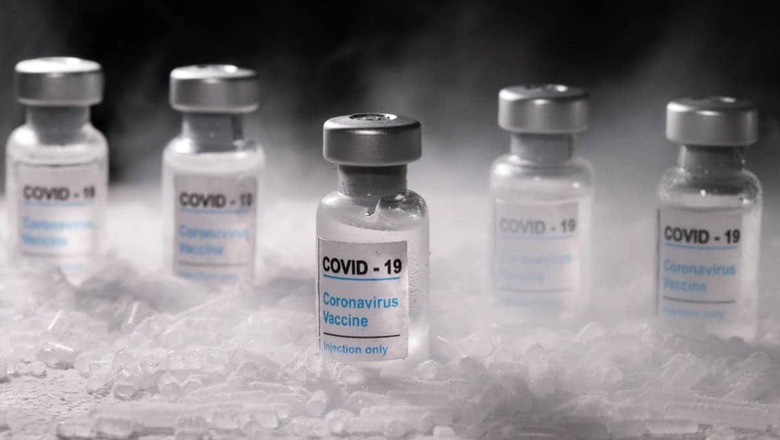
views
With the US and UK rolling out Pfizer-BioNTech's COVID-19 vaccine that must be stored at extreme low temperature of minus 70 degrees Celsius, China's dry ice industry is looking to cash in on the soaring demand for cold chains, the official media reported. Dry ice and its machine suppliers in China are working in full swing to respond to the soaring demand for the cold chain with some companies' export orders to the US jumping by an unprecedented 10 to 20 times year-on-year, it said. Industry insiders predicted that the demand for dry ice will further rise with the launch of more vaccines, and may last half a year, state-run Global Times reported.
The COVID-19 vaccine developed by American pharmaceutical giant Pfizer and German firm BioNTech needs to be stored at extremely low temperature, pushing up demand for dry ice, which has widely been used in the delivery of deep-sea fish, beef and imported fruit products. Logistic disruptions due to the ongoing outbreak have caused a rising shortage of containers and jumping prices for air cargo, which has added pressure to the tightening supply of dry ice and the distribution of machines to make it.
In the past three months, Cold Jet, a US-based original equipment manufacturer of dry ice blasting equipment, has received huge orders that exceed its production capacity, the report said. The shortage of dry ice has been seen in both the US and Europe, and the company expects to deliver all the dry ice products to its US and European clients by February and March next year, Sun Gang, a manager with the Shanghai office of Cold Jet, told newspaper.
"The current problem is the extremely short delivery time. Normally, our production cycle for one piece of equipment is three or four months, but now it has been cut to two months, yet we still can't supply enough of it," Sun said, adding that this temporary surge in demand may last for half a year. Pfizer plans to offer up to 1.3 billion doses next year while the US-based biotechnology firm Moderna expects to produce up to one billion doses next year.
Such large doses of the vaccines, coupled with the fact that most vaccines require at least two shots, would require an unprecedented amount of dry ice to be delivered. In view of the shortages of the supply, Pfizer is expanding its own dry ice production line, Sun said.
He said that Pfizer will further expand its dry ice capacity in the line, where it plans to produce 100 tonnes of dry ice a day compared with just a dozen tonnes now. "Pfizer has ordered the equipment from us, but the schedule is tight," Sun said, adding that the company should be able to deliver all the equipment needed in March next year.
Read all the Latest News, Breaking News and Coronavirus News here




















Comments
0 comment